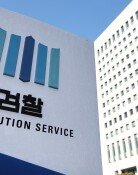Deregulation and Jeju`s Tourist Boom
Deregulation and Jeju`s Tourist Boom
Posted April. 06, 2010 03:25,
Jeju Island ranked second among the countrys 16 cities and provinces in the yearly survey Korea Economic Happiness Index conducted by Hyundai Research Institute. Jeju jumped to the top spot from 15th in the 2008 and last years surveys. The studys economic happiness index measures the level of individual satisfaction and happiness. Of course, regional economic conditions are reflected in the index. The institute said Jejus rank was greatly helped by its booming tourism industry, which accounts for 70 percent of the islands economy, thanks to the increase in the number of tourists.
The number of domestic tourists who visited Jeju was an average 4.6 million per year before 2005, but soared to 5.89 million last year. Tourism revenue increased from 1.72 trillion won (1.53 billion U.S. dollars) in 2007 to 2.37 trillion won (2.11 billion dollars) in 2008. A survey of the Jeju branch of the Bank of Korea found that the islands tourism revenue increased last month. Some said tourism on Jeju could fall because more Koreans began traveling abroad from the end of last year as the economy improved. Yet the number of tourists going to Jeju continuously rose because budget air carriers created when airline regulations were eased enhanced the islands competitiveness. Not even the addition of another airport could make things better.
Weather, however, is the biggest inconvenience for visitors to Jeju. If it rains suddenly or a storm hits, there is nothing to do indoors. World-class tourist destinations have many things to do regardless of weather. Around 27 million people visit Macau every year, an island that opened its casino market to the world in 2003. Though Jeju has eight casinos exclusively for foreigners, they complain that the facilities are too small and no fun. Fewer tourists lead to sluggish investment, which starts a vicious cycle.
The success of budget air carriers to Jeju clearly shows the effects of deregulation. The recent sales boom of the milky rice wine makgeolli was possible because the limit on sales venues was lifted. More foreign tourists can come to Korea if regulations on tourism and the medical industry are eased. Those who fear loss of protection and privilege from deregulation need to learn from Jejus example. More aggressive deregulation is required to help Jeju, an island with abundant tourist resources, develop into international city for tourism. Other sectors can also greatly benefit through deregulation.
Editorial Writer Park Yeong-kyun (parkyk@donga.com)



![“한동훈, 정치생명 걸고 무소속 출마해 평가받는 것 고려할만”[정치를 부탁해]](https://dimg.donga.com/c/138/175/90/1/wps/NEWS/IMAGE/2026/01/19/133186982.1.jpg)


![[한규섭 칼럼]왜 여당 지지율은 떨어지지 않는가](https://dimg.donga.com/c/138/175/90/1/wps/NEWS/IMAGE/2026/01/19/133189257.1.png)
